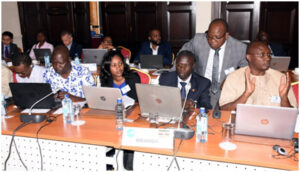Tax Policy and Administration
We help governments and tax authorities in developing countries in ensuring effective tax systems as a crucial element of domestic resource mobilisationand as a tool for sustainable development through
- providing tailored tax policy advice on a series of specific tax areas that can support developing countries with their efforts to mobilize domestic revenues
- Supporting countries in designing and incorporating Tax Policy Analysis Units and equipping them with requisite skills to guide national tax policy decisions with solid analytical evidence and regular inputs during the tax policy formulation processes, and support other ministries, and the tax administration.
- Assistance in improving business formalisation rates through tailored tax policy, including by improving the design of VAT and labour taxes, and the better use and matching of different data sources such as tax returns and business registries. Assistance can also go support countries in self-assessing the design of their existing (or future) presumptive tax regimes using a country-specific analysis framework
- Supporting countries in improving the design of their excise taxes – including on tobacco, alcohol and sugar-sweetened beverages – to improve the health of the population and raise revenues. We can also help with implementing any necessary complementary changes to the tax system that will increase the role of excise taxes in financing healthcare systems.
- assisting countries with tax expenditure analyses, including defining tax expenditure benchmarks, item-by-item assessments of tax expenditures and developing comprehensive tax expenditure reports
- provide countries with detailed analysis of the tax burden faced by SMEs, and offer tailored policy recommendations to improve simplified tax regimes and streamline tax administration procedures, encouraging greater growth in the sector
- Assisting in revenue risk assessment, e.g. assessing tax-related illicit financial flows, including the tax challenges of digitalization; and support in revenue risk management, including risk management of tax compliance – developing a risk management programme and building capacity of revenue agency for risk management;
- Advanced research on a wide range of tax-related topics to inform policy, and post-reform analysis aimed at identifying challenges to reform and testing potential or alternative solutions
- Macro-fiscal models, macro-fiscal tax incidence modeling and analysis and simulation modules for key revenue groups (VAT, personal income tax, corporate income tax and excise tax)
- Trainings on topics including tax policy and administration, tax policy analysis, tax revenue forecasting, transfer pricing, natural resource taxation (the design of fiscal regimes for petroleum and minerals, encompassing royalties, taxation, production sharing, state participation, and pricing mechanisms)
- Consider how tax policy can drive innovation and support inclusive and sustainable growth, as well as provide the certainty necessary to support investment and trade.




